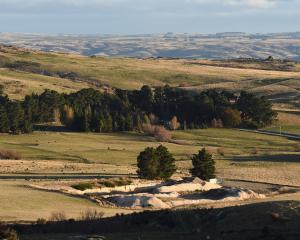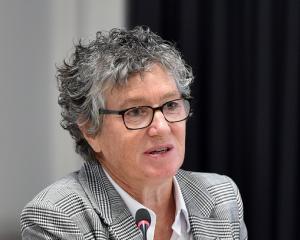
At yesterday’s Otago Regional Council meeting, Cr Michael Laws asked Jonathan Rowe — programme manager for the city council-led South Dunedin Future scheme — whether it had considered "talking to some Dutch engineers".
Mr Rowe confirmed the city council had spoken to one of the Netherlands’ top water engineers, Pieter Bloemen, about what lessons Dunedin could learn from the Dutch approach.
"We’re looking at a lot of their approaches, as they have had to address similar issues," Mr Rowe said.
"We will soon start to interrogate that."
Mr Rowe said the discussions were continuing.
He later told the Otago Daily Times the Netherlands was widely recognised as a world leader in water management and engineering.
"When we think about the Netherlands, we think about dykes and windmills, but they are actually facing some real challenges when it comes to climate change and infrastructure."
Mr Rowe said Mr Bloemen spoke at a Dunedin community event through Zoom last month and his suggestions — along with those present at the meeting — helped "crowd-source" some of the climate change adaptation proposals that would go before the Dunedin City Council shortly.
"The Dutch have been dealing with some of these issues incrementally for centuries, but climate change has meant the need for transformational activities," Mr Rowe said.
He said an approach from the Netherlands Embassy in early 2023, brokered by MP Ingrid Leary, led to Mr Bloemen’s involvement in the community meetings.
The South Dunedin Future programme will provide guidance about how the community will adapt to climate change and natural hazards.
Mr Rowe told the ORC the programme would take about three years to complete, by which stage it was hoped to have support from central government.
A report presented to the ORC yesterday said there needed to be a more positive direction for the programme so all sectors of the community would support it.
However, the report also warned South Dunedin was subject to flooding and other natural hazards, and there was concern public and private sectors were "not adequately accounting for current or future flood risk".
Cr Gretchen Robertson said since it had approached community groups with the "more positive framing", the strategy had been better received.
"We want to be giving communities something that they feel they can get involved in.
"This includes the notion of not only making South Dunedin a safer place, by reducing climate change impacts and associated risk, but also a better place to live, work and play through sustainable urban development and regeneration."
LJ Hooker Dunedin managing director Jason Hynes said most people looking to buy in South Dunedin had a "level-headed" approach.
"If you look at the number of sales in South Dunedin, it’s still pretty positive, particularly in St Kilda."
Mr Hynes said people should do as much research on a location as possible before considering buying.
"You will find that other parts of Dunedin would also have similar risks," he said.










